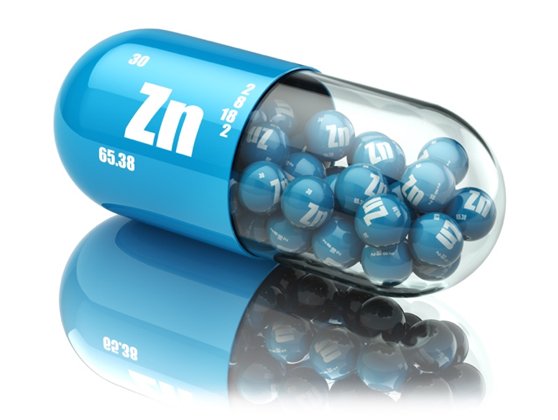Zinc is a mineral that is essential to many vital processes in our body. Zinc helps you synthesize DNA and other essential proteins, and is critical to your immune system and healing of wounds. Zinc helps you smell and taste your favorite foods and enjoy the aroma of flowers.
Since your body cannot store zinc, you need to get it from your diet. The recommended daily allowance (RDA) of zinc is currently 11mg/day.
Oysters contain the highest concentration of dietary zinc. Other foods high in zinc include red meat and poultry. Crab, lobster, beans, nuts, dairy products, and whole grains are other good sources of zinc.
Zinc deficiency is more common in the elderly. According to one study that included zinc in both diet and supplements, 20 to 25% of older Americans get less zinc than they need.
You don’t have to be elderly to be low in zinc. Vegetarians and people who take “water pills” can also be zinc-deficient. When you take a “water pill” or diuretic, along with the extra sodium and water flushed out by the medicine, your body also eliminates more zinc.
Whole grains and beans that contain zinc also have compounds called phytates. Phytates attach to zinc in your food, interfering with your ability to absorb it from your gut.
Vegetarian diets contain more phytates because they contain more whole grains and beans and less zinc-rich red meat and poultry. Some suggest that people eating a vegetarian diet may need up to 60% more zinc than recommended by the Food and Drug Administration’s RDA.
Zinc supplements interfere with another mineral, copper. Oral supplements of zinc are used not just to treat zinc deficiency but as a treatment for Wilson’s disease. Wilson’s disease is a rare genetic condition in which your body to be unable to process copper, causing copper to accumulate in your liver and other organs. This causes liver failure and death if not recognized and treated. Oral zinc supplements treat Wilson’s disease by inhibiting copper absorption.
Zinc stimulates your immune system and inhibits viral replication. This makes it an exciting option in treating viruses like skin warts and the common cold.
One study looked at people who had at least 15 warts and failed conventional wart treatments. They were divided into 2 groups, one group taking oral zinc 10mg/kg (up to 600mg) daily and the other group taking a placebo. Sixty percent of those taking zinc had no warts left at the end of one month. Within two months, 86% were wart-free, compared with no improvement in the placebo group.
There are about 500 million colds per year in America, with an average of 2.5 colds per year for most Americans. Can zinc help treat the common cold?
YES! There is evidence proving that zinc supplements shorten the length of a cold and make its symptoms less severe.
The effect is most potent when starting zinc within the first 24 hours of cold symptoms. You can shorten the length of a cold by an average of one day by taking zinc acetate lozenges containing 13mg of elemental zinc taken up to 6 times daily.
Zinc supplements can affect specific antibiotics by attaching to them, decreasing
your ability to absorb them. This can result in getting only part of the dose of medicine, causing the antibiotic to fail to cure your infection.To avoid a treatment failure by not absorbing the entire dose, you should separate zinc from certain antibiotics so it can’t attach to them and prevent them from being absorbed into your body.
Here Are 4 Tips on Taking Zinc Supplements:
- Stock up beforehand.
Keep zinc lozenges on hand BEFORE your next cold, so you can start them as soon as you notice cold symptoms.
- Start as soon as possible.
If at all possible, start taking zinc within the first 24 hours of noticing cold symptoms. The longer you wait, the less effective it will be in decreasing the severity and the length of your cold. Take one 13mg zinc gluconate lozenge up to 6 times daily for up to 6 days.
- Don’t mix zinc supplements with certain antibiotics.
When taking ciprofloxacin (Cipro®), levofloxacin (Levaquin®), tetracycline, or doxycycline, space out your antibiotic from any zinc supplements. Zinc supplements should be taken at least 2 hours before your antibiotic dose, or at least 4-6 hours afterward.
- Space out any iron and zinc supplements.
Zinc can attach to iron tablets, preventing you from absorbing the iron. If you are anemic, separate taking iron tablets from zinc by at least 2 hours.


